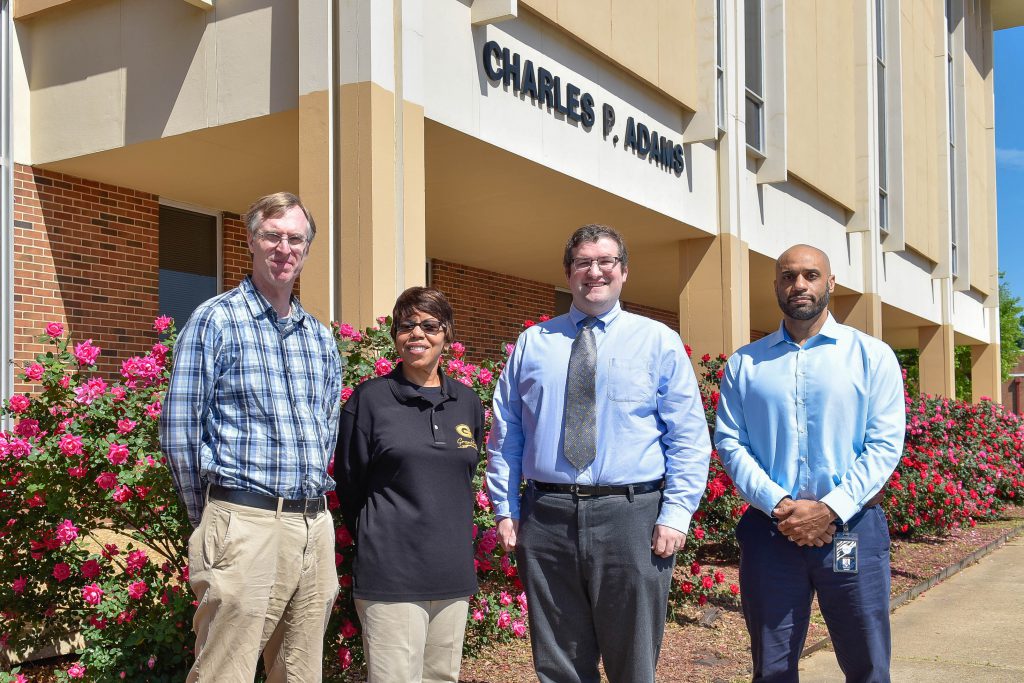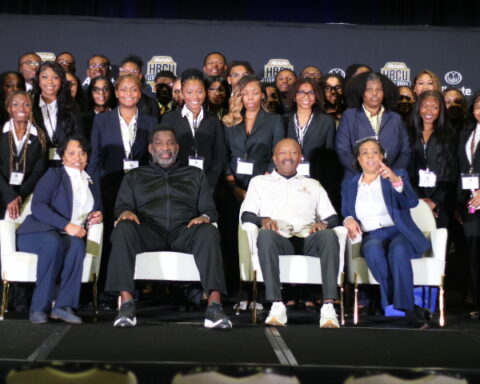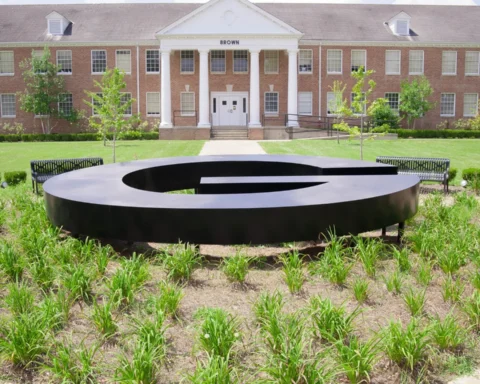Courtesy of Grambling State University
The National Endowment for the Humanities (NEH) in partnership with the Social Science Research Council (SSRC) recently awarded a $94,817 grant to Grambling State University’s (GSU) Department of History to research and record the history of the African American experience in northern Louisiana.
“Voices of Grambling: A Digital Oral History Project,” intersects with the 120-year history of the institution and will be led by project investigator Dr. Edward Holt, an assistant professor and interim department head for GSU’s Department of History along with Dr. Roshunda Belton-Cardoza, a professor and Associate Vice President for Academic Affairs; Yanise Days, a Department of History instructor; Dr. Gaidi Faraj, an assistant professor; and Dr. Brian McGowan, an assistant professor.
This team will collaborate with GSU undergraduates and scholars from across the U.S. on a digital oral history project to preserve voices from historically disadvantaged populations that COVID-19 has disproportionately affected.
“Many of the ones that have been disproportionately affected during the pandemic, including the loss of lives, have lived through so much history, some of which has been lost along with lives lost to COVID-19,” Holt said. “This project will help us gather much of that history and use understanding of the past to try and help build for a better future for GSU students and the population centered around Grambling itself.”
GSU’s award is part of a $2.5 million grant from the National Endowment for the Humanities (NEH) Sustaining the Humanities through the American Rescue Plan (SHARP) Act of 2021 initiative. NEH/SSRC SHIP grants were designed to address the pandemic’s wide-ranging impact on higher education and the humanities sector by offering organizations and academic departments a direct opportunity to rebuild and recover.
The University is one of 21 grantees, ranging from research universities, HBCUs, and small liberal arts colleges to nonprofit and community organizations, who will receive awards of up to $100,000 each to support the full spectrum of humanities infrastructure.





